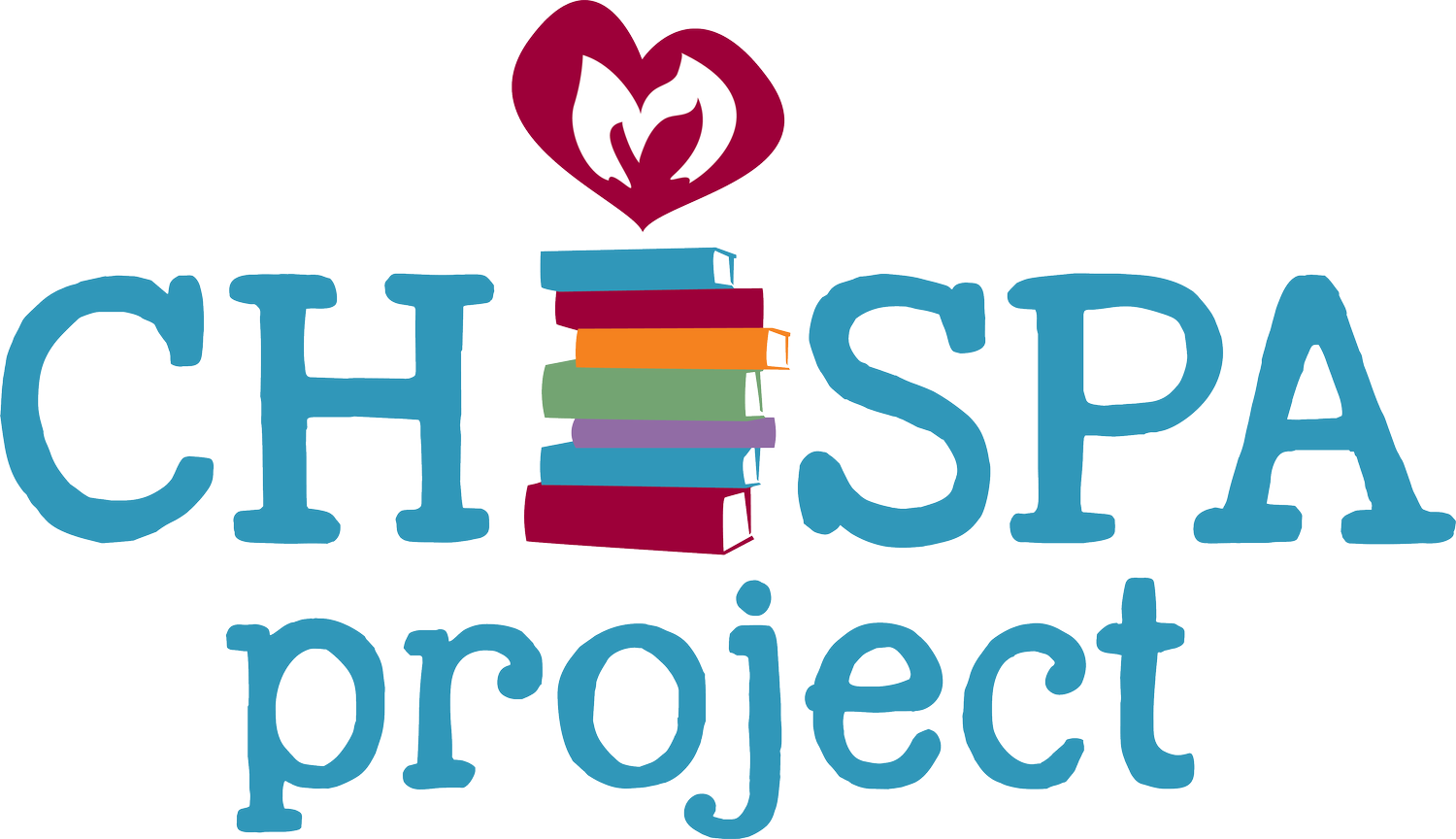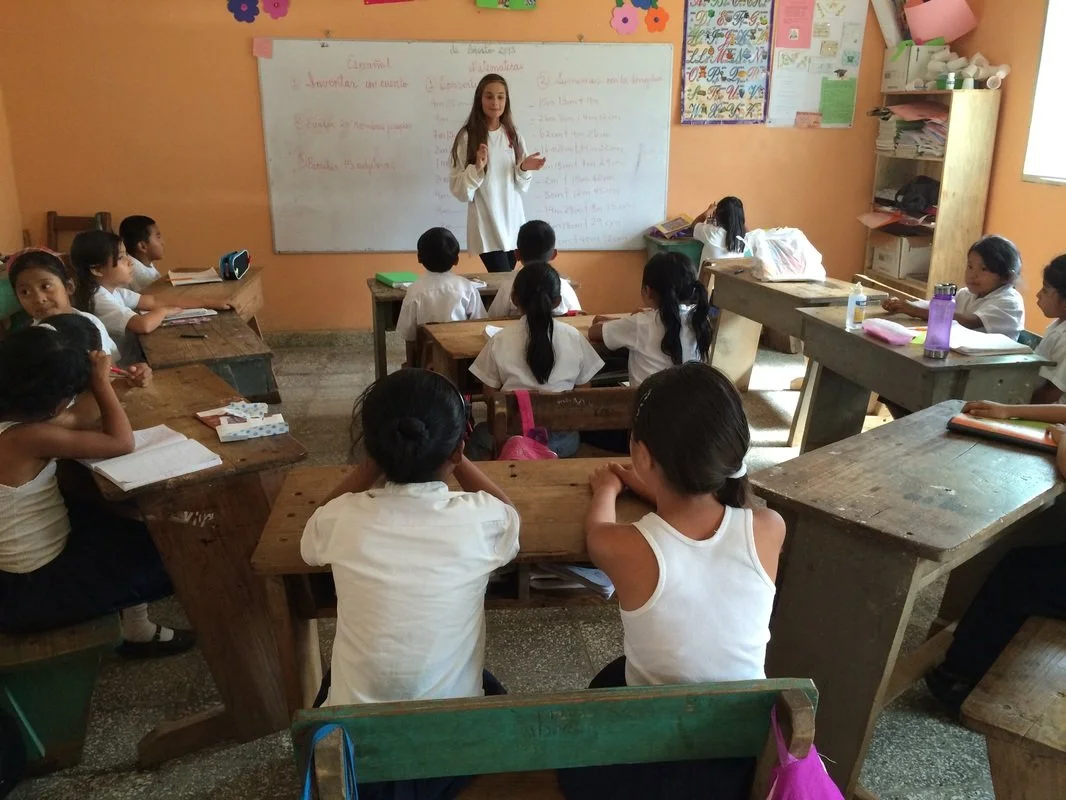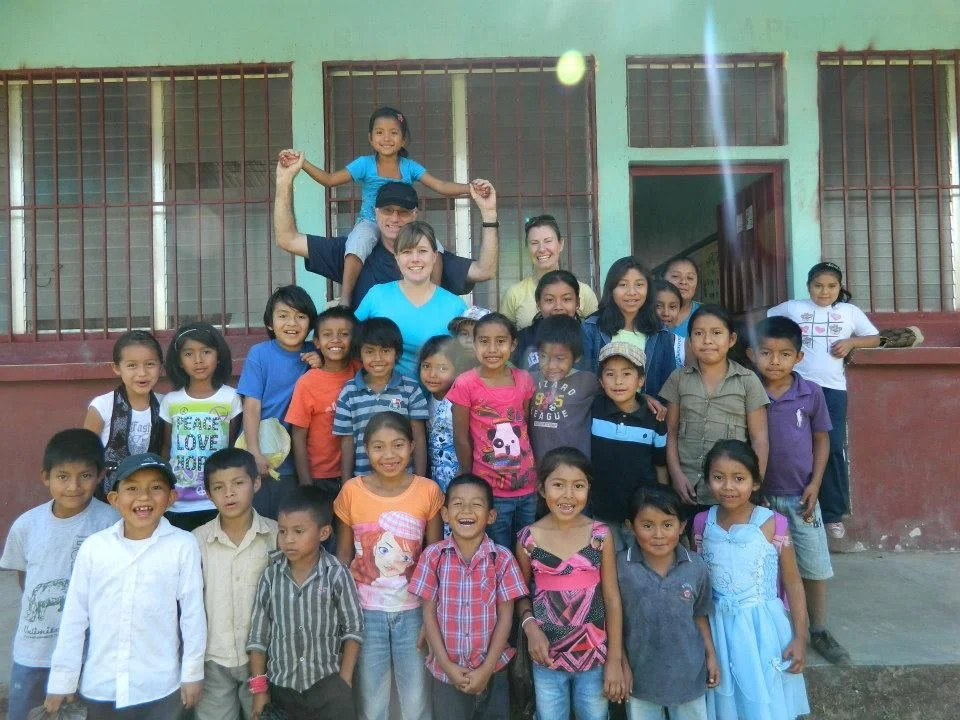Our History
The first books were donated in the summer of 2012 to a tiny mountain school in El Sauce, Opatoro, Honduras. Sara Burkes Brakhane spent the summer volunteering in a small, one-room school that housed 1st through 3rd grades. The students struggled with everything from a lack of textbooks, to lack of school supplies like pencils and erasers.
Many students in rural schools like El Sauce spend the entire day copying their shared textbook word for word. And even though many can’t read, they have perfect handwriting due to this teaching method.
Every week, Sara would go to the nearest library and bring back books to use in the classroom and after school. During school, kids would use the books if they finished their classwork early.
But the real miracle happened after school hours, when kids would line up along Sara’s front porch and read the books until bedtime. Many students had never held a children’s book before, and were in awe of the pictures and the stories told. Sara observed the books helped fill a critical gap to support a single teacher with multiple grades, by giving students ownership of their own education.
After that summer, Sara begin to work with international volunteers in Honduras to bring donated books in Spanish to rural schools in the Opatoro municipality and thus started the Chispa Project. In the first five years, Chispa Project created alliances with Honduran teachers, mayors, PTAs (padres de familia), superintendents and international volunteers to bring over 25,000 books to 60 different schools.
Chispa Project has a unique approach in bringing books directly to schools, thus supporting the established, local educational institutions instead of trying to create new ones. After a donation occurs, book ownership belongs to the school, and we train the teachers and the PTA (padres de familia) to jointly manage the books. We strive for maximum usage of the books by ensuring all students have access through distribution of books to each classroom and deliberate silent reading time built into daily lesson plans.
Chispa,” in Spanish, means “spark.” It’s often used to describe people who have a little something extra, or the will to get things done in an extra-ordinary way. We’ve watched books like these provide a spark in children’s eyes, and it’s a spark that has the ability to light a fire. The books motivated children to learn on their own, improving their reading skills and critical thinking skills. Books are rare in Honduras: hard to find and expensive at $15-20 a piece, even in major cities. Books help create a culture of reading that provides the foundation for all other success in school.



